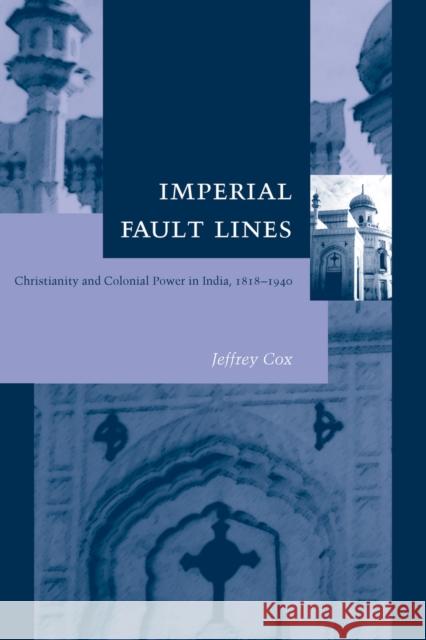Imperial Fault Lines: Christianity and Colonial Power in India, 1818-1940 » książka
Imperial Fault Lines: Christianity and Colonial Power in India, 1818-1940
ISBN-13: 9780804743181 / Angielski / Twarda / 2002 / 384 str.
Imperial Fault Lines tells the history of Christian missionary encounters with non-Christians in a part of the world where there were no Christians at all until the advent of British imperial rule in the early nineteenth century. As British and American missionaries spread out from Delhi into the heartland of Punjab, their preconceived ideas about Hinduism and Islam broke down rapidly as they established institutions requiring the close cooperation of Indians. Two-thirds of the foreign missionaries who entered the Punjab were women, and issues of gender as well as race were central dilemmas in a cultural encounter that featured numerous irresolvable conflicts. The missionaries' commitment to Christian universalism clashed with the visible realities of their imperial privileges. Although determined to build multiracial institutions based on spiritual equality, missionaries were the beneficiaries of an imperial racial hierarchy. Their social encounters with Indians were exceedingly complex, involving intimacy and affection as well as affronts and betrayals. Missionaries were compelled to react to circumstances not of their own making, and were forced to negotiate and compromise with Indian Christians, government officials, Indian critics of the missionary movement, and the many non-Christian students, patients, and staff at large and influential missionary schools, colleges, and hospitals. In villages, university-educated clergymen who had hoped to convert the Hindu and Muslim elite found themselves in the surprising position of advocating the rights of stigmatized and oppressed rural laborers. The history of elite institution-building took surprising turns during the rise of the national movement, as missionaries struggled with the conflict between their own transparent entanglement with imperialism and their attempts to foster new forms of indigenous Christianity that would outlive British imperial rule.











